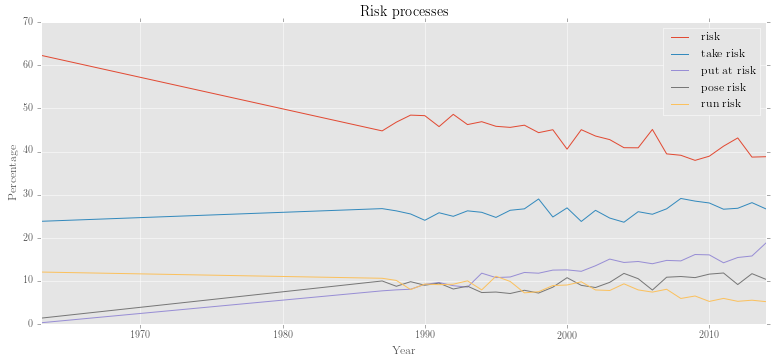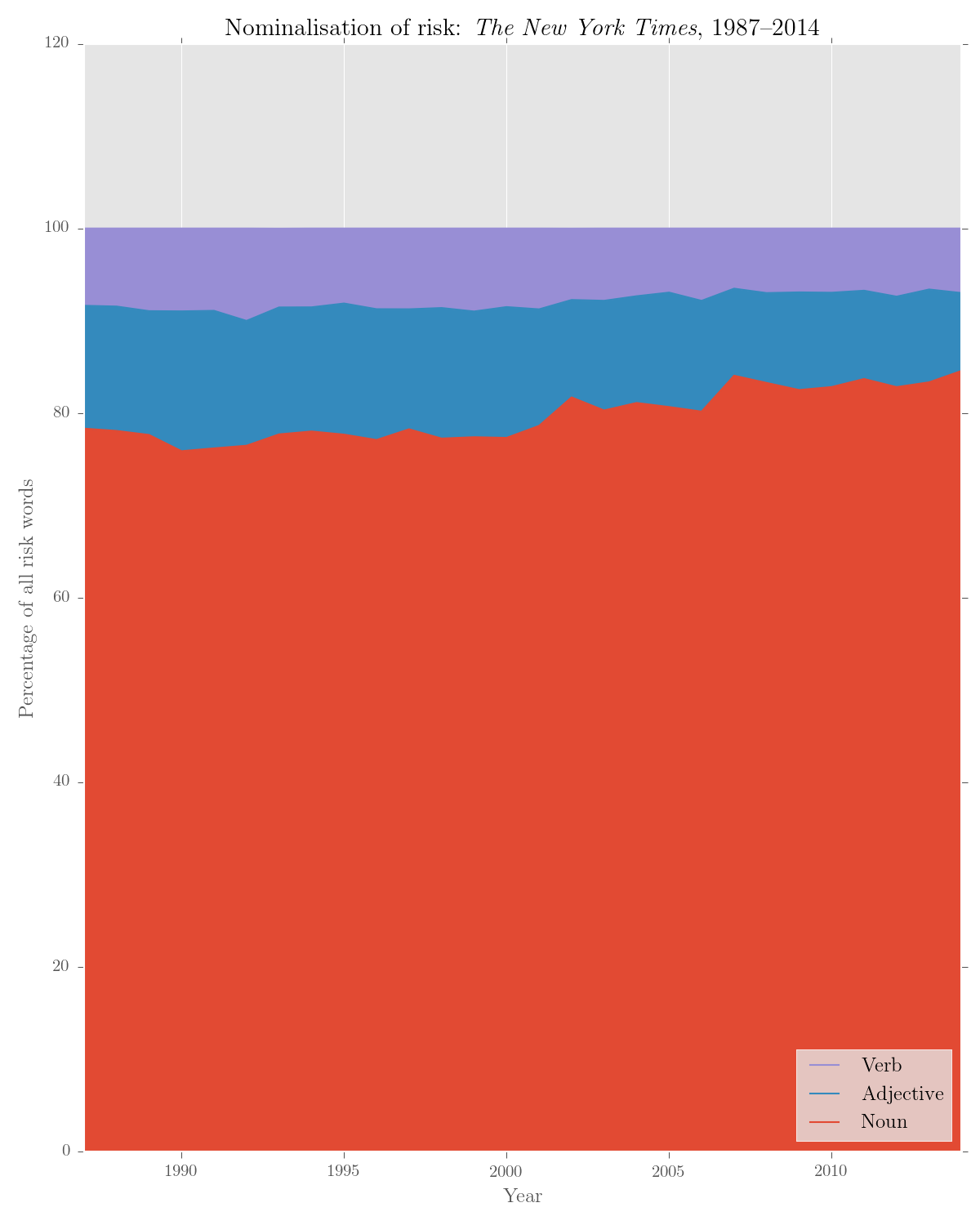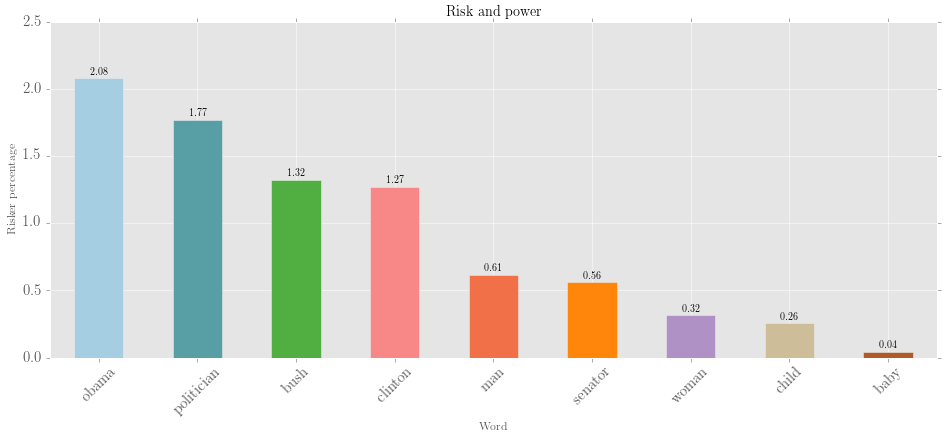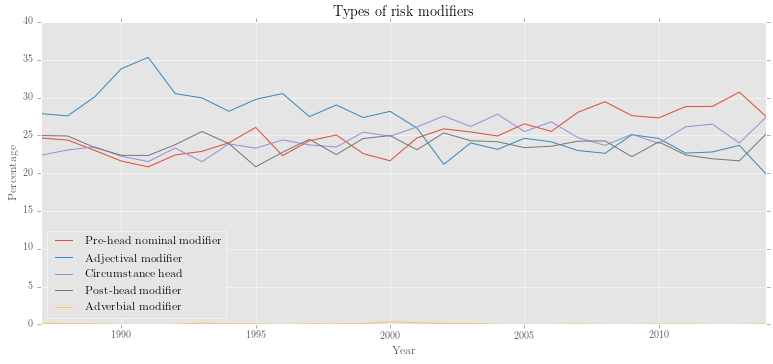This repository contains much of what was created for our longitudinal analysis of risk language in The New York Times. The investigation involves systematic analysis of over 150,000 NYT paragraphs containing a risk token (risk, risking, at-risk, risk-to-reward, risk-laden, etc). These paragraphs have been parsed with Stanford CoreNLP, and are interrogated using corpkit, which was developed for this project.
Our IPython Notebook presents the code used in our analysis side-by-side with our results. It can be viewed via either GitHub or nbviewer. Basically, we were interrogating the corpus for lexicogrammatical features of risk, and looking for sites of change. Here are a few examples, made using corpkit's interrogator() and plotter() functions:
Theoretically, our interest is in empirically examining sociological claims about risk made by (e.g.) Beck, Giddens and Luhmann. To do this, we rely on Systemic Functional Linguistics (e.g. Halliday & Matthiessen, 2004), with particular focus on experiential meaning. Our report, which contextualises and elaborates on these results, is available as PDF and .tex source via Overleaf.
If you want to download and interrogate the corpus yourself, read on.
Once you've got IPython (pip install ipython[all] should do it for non-Windows users), you should downlad the contents of this repository. Either download and unzip via 'Download ZIP', or clone the repository with:
git clone https://github.com/interrogator/risk.gitThen, change into the project directory and start the IPython Notebook:
cd risk
# or, cd risk-master if you downloaded the .zip
ipython notebook risk.ipynbThe first few cells in the notebook will then help you:
- install and import
corpkit - unzip corpus data
The remainder of the notebook demonstrates our methods and findings, which you can freely manipulate if you like.
When running the Notebook locally, a couple of IPython extensions come in very handy:
- First, you can use this to generate a floating table of contents that makes the Notebook much easier to navigate.
- Second, given that some of the code can take a while to process, it can be handy to have browser-based notifications when the kernel is no longer busy.
More elaborate installation info, alongside code, is available once you've got risk.ipynb up and running.
- Host for corpus dependencies
- Code used to build corpora
- Dedicated cloud host for data and IPython Notebook (so that you can play with the data without installing anything!)




